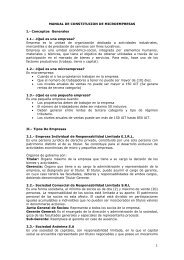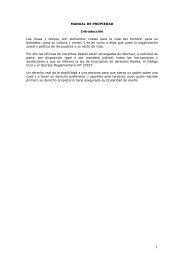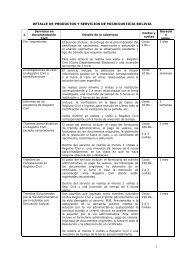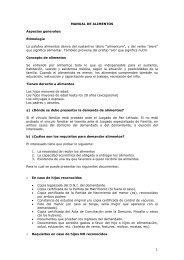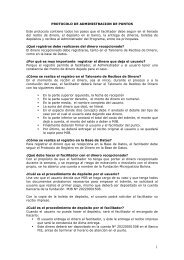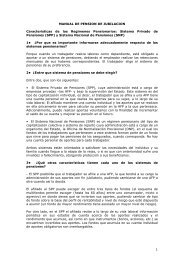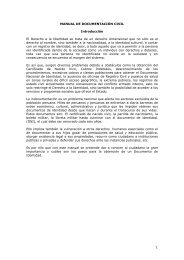ICISS report - International Coalition for the Responsibility to Protect
ICISS report - International Coalition for the Responsibility to Protect
ICISS report - International Coalition for the Responsibility to Protect
You also want an ePaper? Increase the reach of your titles
YUMPU automatically turns print PDFs into web optimized ePapers that Google loves.
The <strong>Responsibility</strong> <strong>to</strong> <strong>Protect</strong> 33<br />
4.20 It is important <strong>to</strong> make clear both what <strong>the</strong>se two conditions include and what <strong>the</strong>y<br />
exclude. In <strong>the</strong> Commission’s view, <strong>the</strong>se conditions would typically include <strong>the</strong> following<br />
types of conscience-shocking situation:<br />
❏ those actions defined by <strong>the</strong> framework of <strong>the</strong> 1948 Genocide Convention that<br />
involve large scale threatened or actual loss of life;<br />
❏ <strong>the</strong> threat or occurrence of large scale loss of life, whe<strong>the</strong>r <strong>the</strong> product of genocidal<br />
intent or not, and whe<strong>the</strong>r or not involving state action;<br />
❏ different manifestations of "ethnic cleansing," including <strong>the</strong> systematic killing of<br />
members of a particular group in order <strong>to</strong> diminish or eliminate <strong>the</strong>ir presence in<br />
a particular area; <strong>the</strong> systematic physical removal of members of a particular group<br />
from a particular geographical area; acts of terror designed <strong>to</strong> <strong>for</strong>ce people <strong>to</strong> flee;<br />
and <strong>the</strong> systematic rape <strong>for</strong> political purposes of women of a particular group<br />
(ei<strong>the</strong>r as ano<strong>the</strong>r <strong>for</strong>m of terrorism, or as a means of changing <strong>the</strong> ethnic<br />
composition of that group);<br />
❏ those crimes against humanity and violations of <strong>the</strong> laws of war, as defined in <strong>the</strong><br />
Geneva Conventions and Additional Pro<strong>to</strong>cols and elsewhere, which involve large<br />
scale killing or ethnic cleansing;<br />
❏ situations of state collapse and <strong>the</strong> resultant exposure of <strong>the</strong> population <strong>to</strong> mass<br />
starvation and/or civil war; and<br />
❏ overwhelming natural or environmental catastrophes, where <strong>the</strong> state concerned<br />
is ei<strong>the</strong>r unwilling or unable <strong>to</strong> cope, or call <strong>for</strong> assistance, and significant loss of<br />
life is occurring or threatened.<br />
4.21 In both <strong>the</strong> broad conditions we identified – loss of life and ethnic cleansing – we have<br />
described <strong>the</strong> action in question as needing <strong>to</strong> be “large scale” in order <strong>to</strong> justify military<br />
intervention. We make no attempt <strong>to</strong> quantify “large scale”: opinions may differ in some<br />
marginal cases (<strong>for</strong> example, where a number of small scale incidents may build cumulatively<br />
in<strong>to</strong> large scale atrocity), but most will not in practice generate major disagreement. What we<br />
do make clear, however, is that military action can be legitimate as an anticipa<strong>to</strong>ry measure<br />
in response <strong>to</strong> clear evidence of likely large scale killing. Without this possibility of anticipa<strong>to</strong>ry<br />
action, <strong>the</strong> international community would be placed in <strong>the</strong> morally untenable position<br />
of being required <strong>to</strong> wait until genocide begins, be<strong>for</strong>e being able <strong>to</strong> take action <strong>to</strong> s<strong>to</strong>p it.<br />
4.22 The principles we have specified do not attempt <strong>to</strong> draw a distinction between<br />
situations where <strong>the</strong> killing or ethnic cleansing is caused by <strong>the</strong> action – or deliberate<br />
inaction – of a state, and those where <strong>the</strong> state in question has failed or collapsed. In a failed<br />
or collapsed state situation, with no government effectively able <strong>to</strong> exercise <strong>the</strong> sovereign<br />
responsibility of protecting its people, <strong>the</strong> principle of non-intervention might seem <strong>to</strong> have<br />
less <strong>for</strong>ce. But when it comes <strong>to</strong> <strong>the</strong> threshold “just cause” issue of determining whe<strong>the</strong>r <strong>the</strong><br />
circumstances are grave enough <strong>to</strong> justify intervention, it makes no basic moral difference<br />
whe<strong>the</strong>r it is state or non-state ac<strong>to</strong>rs who are putting people at risk.<br />
4.23 Again, <strong>the</strong> principles as we have defined <strong>the</strong>m make no distinction between those<br />
abuses occurring wholly within state borders, with no immediate cross-border consequences,<br />
and those with wider repercussions. This reflects our confidence that, in extreme<br />
conscience-shocking cases of <strong>the</strong> kind with which we are concerned, <strong>the</strong> element of threat



